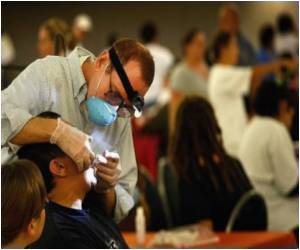
A daily regimen of brushing and flossing is an important part of good oral health while equitable access to professional dental care is essential for diagnosis, prevention and treatment leading to good oral and general health, said the Canadian Dental Association (CDA).
"Canada has one of the best oral health care systems in the world," said CDA President, Dr. Ron Smith. "The survey confirms our thinking - that Canadians in general have good oral health and benefit from regular visits to the dentist and from maintaining a regular routine of brushing and flossing. We are thrilled that the vast majority of Canadians are doing well and we will continue our advocacy efforts so that in the future even more than 84% of Canadians will report their oral health as good or excellent."
Significantly, in 1970-72, Nutrition Canada found 23.6 of adults aged 19 and older were edentulous — had lost all their natural teeth — compared with 6.4 per cent in the latest study.
Still the flip side is that 17% avoid going to the dentist owing to high cost. And of those who did visit the dentist, 16.5% rejected suggested care due to costs.
Canadians with lower incomes and with at least one natural tooth, 46.6%, required one or more kinds of cure compared with 25.6% of those with higher levels of income.
Advertisement
Age, income, country of birth and risk factors such as smoking and regular visits for care were also strongly associated with oral conditions, the report's authors said.
Advertisement
style="mso-special-character: line-break">
Source-Medindia
GPL













